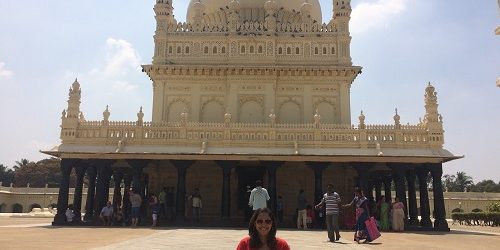
Brief Background
I’m originally from Hamilton, Ohio, a relatively small town right outside of Cincinnati. Before Cornell, I studied at Ohio State University where I obtained my degree in Linguistics. During my time at Ohio State, I was deeply involved with community service as well as various educational initiatives. I worked with an AmeriCorps program that developed educational curriculum for at-risk youth. Beyond that, I’ve participated in service trips around the country, ranging from Hurricane Sandy relief work in New York, to collaborating with individuals living with disabilities in Missouri. This past summer, I worked with the Department of Economic Development in my hometown, working on infrastructure initiatives that would expand the economic potential of the city. Here at Cornell, I am a student blogger, where I will be sharing my experiences with the program as well as tips I learn along the way for maximizing my time in Ithaca as a student.
Why did you chose to pursue an MPA degree at Cornell-CIPA?
I chose CIPA for a multitude of reasons. The flexibility of the program was one major reason I chose CIPA. I like that I can tailor my studies to fit exactly the sort of career I am interested in pursuing. I was excited to have the opportunity to be in a place where I would be surrounded by high achieving people who have great aspirations. I am able to learn from my peers and become inspired to do bigger and better things. The faculty and staff played into my decision as well, they have pushed my knowledge and learning further than I could have imagined. It didn’t hurt that during my application process, the CIPA faculty and staff were very intent on making sure that I felt embraced as well as guided through each step.
What experiences prepared you to attend CIPA?
I would definitely say working for AmeriCorps and working in my hometown for The Department of Economic Development. Both experiences fostered a passion in me for finding new ways and strategies to use policy to make a difference. This allowed me to develop a passion for the community and a desire to give back. This translates to public policy because it is the most pragmatic way to initiate change. You need economic strategies to bring about growth within low achieving areas among poor communities. I’ve also had plenty of experiences that don’t directly translate to what I want to do when I leave CIPA. My experience went from educational initiative in the inner city, to international affairs conflict and issues. How do these connect? I first learned to understand issues on a small-scale, local level, and then on a much larger-scale, international level. Economic policy is the backbone of our country. I feel like it is a platform to tackle pressing issues, whether it is an achievement gap, hunger, or education. If you find ways to tackle issues economically, you may find ways to actually solve the issues… possibly permanently.
What kind of work do you want to do when you graduate and why?
Neither of my parents graduated from high school. I grew up poor. I was the first in my family to go to college… all of this motivated me. You can chase the money and become a lawyer or a doctor, or you can give back. You can go full circle and come back to where you came from and contribute… truly give back.
I want to go into economic and financial policy, which I hope leads to a career in international trade initiatives. When I first entered college to study for my undergraduate degree, I majored in English, and then I wanted to be a lawyer, but then I became interested in policy. When you gain a broader perspective, you develop a passion for that arena- a passion to give back. I want to work in international affairs because growing up poor in America gives you a perspective on the rest of the world… whom the majority of live on under two dollars a day. My experiences have shaped my perspective and the future I would like to pursue.
What do you think of your experience at CIPA so far?
My experience here has transcended my expectations. It has been a great experience so far. You learn more than you ever thought you would and push yourself just as far. You forge friendships and relationships with people quickly, many of which will likely last a lifetime. It’s a great intellectual community, and place of great natural beauty. So, in addition to the people you meet and the classroom setting, it’s really quite inspirational!
What advice would you give to someone considering applying to CIPA?
You learn a lot, the academics are rigorous, you are forced to work harder, and there is a potential reward. There exists a constant feeling of conflicting concerns… “Will it pay off? Or will it be all for nothing?” You feel like you are one of the selected few to study here, but there are a lot of factors. It’s gorgeous here, but you don’t have time to enjoy it… You feel grateful, but you also feel a large amount of pressure. So, in short: Keep the grades up. Become as involved in the community as you can. Find something you are truly passionate about.





